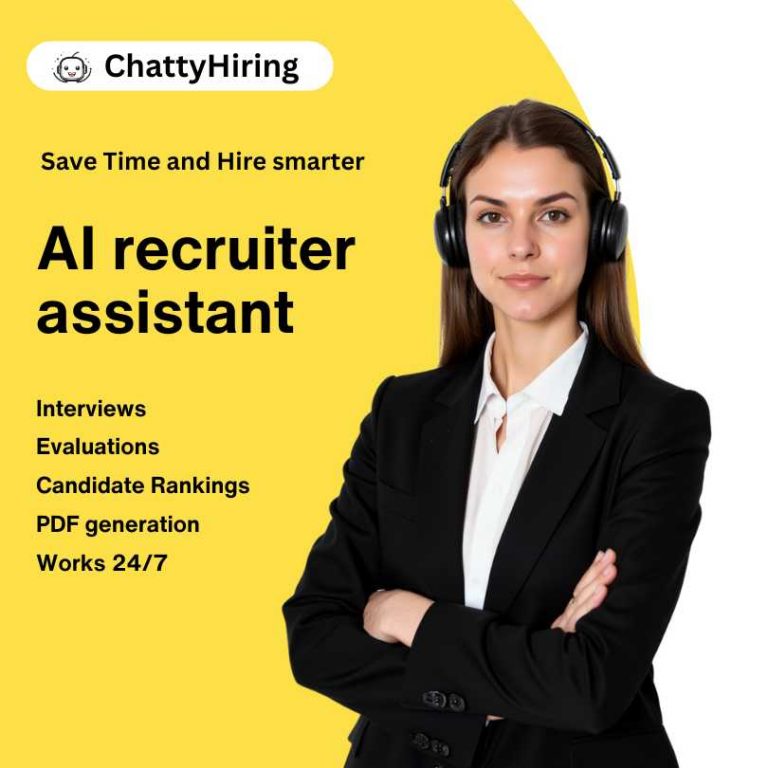Hiring new talent with AI tools streamlines the recruitment process by automating repetitive tasks like resume screening, candidate ranking, and interview scheduling. AI-driven platforms can rapidly identify top candidates, reduce unconscious bias, and improve decision-making with data-backed insights. This enables recruiters to focus on strategic activities rather than administrative workload.

By leveraging machine learning, natural language processing, and predictive analytics, AI tools optimize candidate matching and engagement. Chatbots offer 24/7 communication, while AI-powered assessments analyze skills and cultural fit objectively. These technologies not only speed up hiring but also enhance the quality of hires and diversity outcomes.
Organizations adopting AI in recruitment gain real-time visibility into their talent pipelines, allowing for agile adjustments and efficient resource allocation. Understanding how to integrate these tools effectively empowers companies to hire smarter and scale their workforce without proportional increases in recruiter hours or costs. For more insights on top AI recruiting tools in 2025, see this detailed guide.
Essential Steps for Hiring Talent with AI Tools

AI tools streamline multiple phases of hiring by enhancing precision, speed, and efficiency. From crafting targeted job descriptions to engaging candidates effectively, these technologies transform the recruitment workflow, enabling better decision-making and resource allocation.
Defining Requirements and Optimizing Job Descriptions
Clear role definitions are the foundation of effective AI-driven hiring. By integrating AI recruitment tools, recruiters can use data-driven insights to refine job requirements based on market trends and successful candidate profiles. This limits vague or overly broad descriptions that often attract unqualified applicants.
AI-powered job description writing tools optimize language to target specific skills and reduce unconscious bias. They analyze thousands of similar roles and suggest keyword adjustments that improve search visibility on job boards and applicant tracking systems (ATS). This data-backed optimization increases the quality and relevance of incoming applications.
Recruiters benefit from workflow automation here by using templates tailored dynamically to different roles or departments. Such precision helps set realistic expectations and align candidate pipelines to the organization’s real needs before sourcing even begins.
Automated Sourcing and Candidate Matching
AI recruiting tools expand talent pools by scraping job boards, social media, and internal databases automatically. This automated candidate sourcing widens search beyond traditional channels and surfaces passive candidates who might otherwise be overlooked.
Advanced candidate matching engines use machine learning to assess resumes and profiles against job requirements semantically, not just through keyword matches. This improves fit scoring and ranks candidates based on competencies, experience, and predicted success.
Integration with ATS allows seamless transfer of matched candidates, streamlining workflows and reducing manual input errors. Recruiters can monitor dashboards showing candidate quality in real time, enabling better prioritisation of outreach efforts.
These tools support internal mobility by identifying current employees who align well with open roles, fostering retention and reducing time-to-fill.
AI-Driven Screening and Shortlisting
Automated candidate screening uses NLP-powered AI screening tools to extract skills, education, and experience from resumes rapidly. Models are continuously trained on recruiter feedback to refine their accuracy and relevance.
AI shortlists candidates based on objective fit scores, removing demographic or identity markers to mitigate unconscious bias. This improves diversity outcomes while maintaining high-quality selection.
Screening workflows integrate directly with applicant tracking systems, enabling recruiters to focus on structured interviews instead of initial filtering tasks. Organisations report significant time savings—up to 80% reduction in early screening phases—allowing better allocation of human resources.
AI-driven assessments may also include video analytics and digital tests to evaluate soft skills and cognitive abilities consistently across the candidate pool.
Interview Scheduling and Candidate Engagement
AI-powered chatbots automate interview scheduling by coordinating calendars, sending reminders, and answering candidate FAQs 24/7. This reduces administrative bottlenecks and improves candidate experience.
Personalisation features allow chatbots to tailor interactions based on candidate data and specific job requirements, increasing engagement and decreasing application drop-off rates.
Real-time analytics track candidate sentiment and communication patterns, offering recruiters insights into engagement levels and allowing proactive follow-ups.
Integrating these workflows with ATS ensures all scheduling and engagement activities are recorded and visible to hiring teams. This creates a seamless communication loop and helps maintain transparency throughout the hiring process.
Top AI Tools, Integrations, and Best Practices

Effective AI recruiting involves selecting the right tools, connecting them with existing systems, and applying practices that maintain fairness and efficiency. Combining technologies like AI chatbots, video interviews, and natural language processing (NLP) with structured recruitment workflows enhances decision-making and candidate experience.
Leading AI Recruitment Software to Consider
Several AI recruitment platforms stand out for distinct needs. Eightfold excels in deep candidate matching using skill mapping and candidate ranking to find potential beyond keywords. HireVue offers AI-powered video interviews with bias reduction features, improving remote hiring and assessment.
For smaller or growing companies, Manatal provides an intuitive drag-and-drop interface alongside candidate tracking and customizable pipelines. Tools like Textio enhance job postings using NLP to reduce biased language, supporting diverse candidate pools.
Outbound recruiting benefits from platforms like hireEZ, which use AI-driven search to identify and engage talent actively. Many tools support high volume hiring by integrating job boards and automating resume screening, ensuring consistent candidate evaluation.
Integrations with ATS and Collaboration Tools
Successful AI recruiting depends on smooth integration with Applicant Tracking Systems (ATS) and collaboration tools. Platforms like Workable bridge AI functionalities such as candidate ranking and sentiment analysis with HR workflows.
Integrations enable automation of interview scheduling, candidate communication via AI chatbots or conversational AI, and seamless data transfer between systems. This reduces manual entry and accelerates hiring timelines.
Connecting AI tools to collaboration apps like Slack and project management platforms streamlines team communication. Recruiters can share candidate insights, track progress, and align hiring decisions efficiently.
Using Zapier or native connectors enhances extensibility, allowing companies to tailor AI recruiting software to their specific tech stack without creating isolated workflows.
Ensuring Efficiency, Fairness, and Compliance
Applying AI in hiring requires balancing speed and fairness. Automated resume screening should be paired with human review to prevent biases and errors. Tools like Textio help create inclusive job descriptions, minimizing unconscious exclusion.
AI can anonymize candidate data to reduce bias in early stages. Algorithms must comply with regulations related to data privacy and discrimination. Regular audits and updating models guard against unintended consequences.
Ethical AI use includes transparency about AI’s role in the process and clear communication with candidates. Efficient workflows combine AI’s speed in candidate matching and scheduling with human judgment to finalize hires.
Continuous monitoring of AI performance and feedback loops improves recruitment quality and candidate experience while maintaining legal compliance.
-

A passionate advocate for the future of HR innovation. With expertise in leveraging AI to revolutionize recruitment processes, Carlos has a clear vision: empower HR teams while creating meaningful candidate experiences.
View all posts



